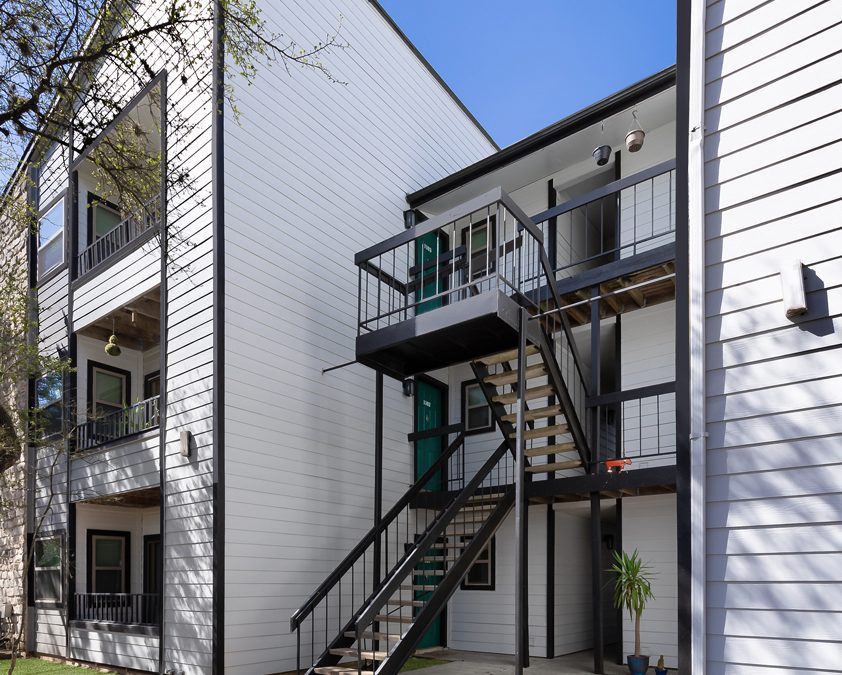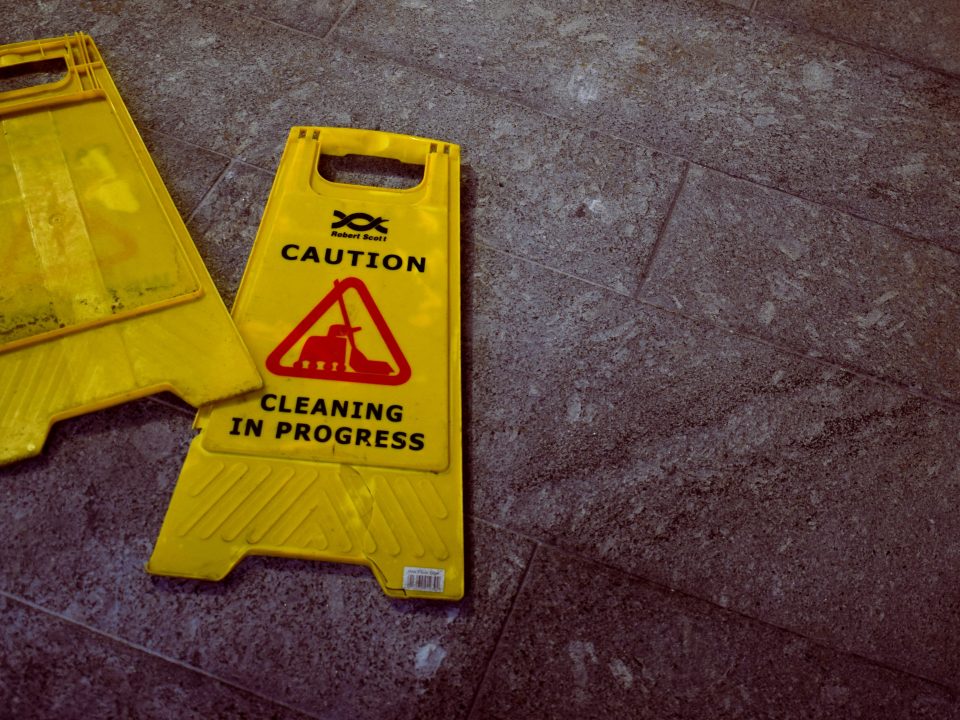How Can REITs Achieve Due Diligence Prior to Remodeling?

Value Add for Your Dallas Commercial Property for Professional Remodeling
May 10, 2021
Hiring a Commercial Restoration Company in Jacksonville, FL
May 26, 2021Prior to the 1960s, individual real estate enthusiasts looking to enter the commercial, single-family, and multifamily real estate markets were forced to do so the traditional way—by selecting, purchasing, and managing properties using their own capital. Alternatively, multiple single investors could form groups or clubs, combining capital to increase investing power and affording the opportunity to more individuals. Unfortunately, building a real estate portfolio and pursuing larger real estate investments were off the table for many American buyers.
In 1960, with the signing of the REIT Act (a part of the larger Cigar Excise Tax Extension signed in the same year), President Dwight D. Eisenhower created the real estate investment trust, or REIT. The move allowed the creation of large real estate investment companies and the subsequent selling of equity stakes in these companies. Most importantly, prospective real estate investors now had the opportunity to create a wide-ranging real estate portfolio free from the need for extensive capital and the corporate taxes that hampered investment corporations.
REITS and planned renovations: A need for due diligence
Today, Nareit reports that REITs own over $3.5 trillion in real estate assets in the United States, amounting to over half a million individual properties. Fortunately, the investment into America’s future doesn’t stop when the property sale is completed. In 2019, REITs pumped over $85 billion in construction and renovation costs back into the economy.
In fact, as any REIT or other real estate investor knows, many real estate purchases require renovations before they can house individual residential or commercial occupants. However, before commercial and residential real estate sales and renovations take place, REITs must first perform due diligence to ensure the purchase and renovations will not only provide confidence in the investment for all shareholders but result in a positive financial return. In short, due diligence is necessary to reveal information about the property and confirm or refute the REIT’s property knowledge and eventual plans for renovations.
A REIT due diligence task list
While it is impossible to eliminate a REIT’s risk when it comes to property purchases and renovations, performing due diligence allows a far better opportunity for achieving a healthy return on the investment for each of its shareholders. A comprehensive pre-purchase and pre-renovation due diligence task list is critical for reducing risk. To help, we’ve developed a task list built to achieve due diligence prior to remodeling.
It is essential to conduct thorough research on any property considered for REIT purchase. Use this task list as a guide to assemble the assets and liabilities of the potential investment property. Then, weigh the risks identified with the benefits the REIT hopes to access after the renovations are complete. In general, due diligence must occur during both the pre-offer and post-offer stages.
Pre-offer due diligence step 1: Determining value
Analysis of a property to determine its potential value after necessary renovations are complete is known as after-repair value, or ARV. At this stage, some REITs may consider hiring an appraiser, real estate agent, or similar professional. However, paying for an official appraisal should occur side-by-side with the REIT’s own real-world analysis of value—then the REIT can compare the two to get a better picture of the property’s potential after the necessary work has taken place.
Look for comps in the area that have recently sold—ideally within the past six months and within 20% of the same square footage. Select three or four that prove a good match for the considered property and look at them as a potential renter or commercial tenant. Are they better or worse than the considered property? Where does the considered property fall in the scale created by the comps?
Finally, create a pro forma to measure against the seller’s version and determine the expected cash flow from the property. Using recorded financials of the property in question, analyze expenses like:
- Insurance
- Taxes
- Maintenance
- Minor repairs needed
- Major improvements needed
- Utilities
- Advertising
- Property management fees
- Other administration fees
- Losses due to vacancies
- Services needed, and more.
REITs will also need to consider each of the potential sources of income. This category primarily consists of rental income but can also include fees and more. Subtracting expenses from income reveals the estimated operating income. This, minus the property’s mortgage debt payments, reveals the REIT’s expected cash flow after improvements.
Pre-offer due diligence step 2: Renovation estimate
Many REITs will not hire a professional inspector for each property they make an offer on but will instead perform their own due diligence regarding potential repairs and renovations necessary. The process helps form a full picture of the costs ahead before making an offer.
First, walk through the property with a list of all potential renovation items. The list may include but is not limited to:
- Roof
- Gutters and soffits
- Exterior siding or another fascia
- Exterior painting
- Concrete
- Landscaping
- Garage or parking area
- Septic/sewer
- Interior paint
- Interior wall coverings
- Flooring
- Framing
- Windows
- Insulation
- Basement
- Foundation
- Electrical
- Plumbing
- HVAC
- Bedrooms
- Bathrooms
- Kitchen
- Appliances
- Cabinets or countertops
- Permitting
- Demolition
- Mold or insect remediation
In particular, REITs should be on the watch for the following issues that could present major expenses:
- HVAC components, Are they out of date, rusted, or otherwise in need of replacement?
- Plumbing. Is there evidence of past leaks or rusted pipes?
- Mold. Is there existing evidence of mold in lower levels, including the basement? Or, is there evidence drywall and flooring has been removed to remediate mold?
- Roofs. Look for evidence of roof damage and leaks. Aging roofs that must be replaced soon are also a significant expense.
- Foundation—cracks in the foundation can indicate the need for bracing. Extreme movement may result in the need for a new portion entirely.
- Electrical. Old or missing grounded outlets, outdated fuse boxes, and inadequate electric panels for the property’s size and load could indicate a costly project ahead.
After identifying and itemizing potential necessary items, compare these expenses with past projects. Alternatively, ask for an estimate from a contractor.
Post-offer acceptance due diligence
After the REIT’s offer is accepted, a more thorough due diligence inspection must take place during the 30-day inspection period and subsequent 60-day closing period. In some circumstances, a REIT may be able to add a clause to extend this period, albeit with another earnest payment and additional expense for investors. At this point, the REIT’s representative must walk each area of the property, including all units of a residential apartment building and each unit of a commercially divided property.
Make sure utilities are turned on and utilize the same itemized list created above. Take photos of any and all issues to provide to the contractor and note the work that needs done. In addition, consider speaking with any current tenants or renters to identify other maintenance issues. Make a finalized list of all necessary repairs, complete with photos, and categorize them as follows:
- Initial projects. These projects must be completed before the general contractor will be able to begin the main renovations. Examples may include site security, trash removal, or electrical issues.
- Construction project. This portion includes all major work intended for the general contractor.
- Subcontractor projects. Subcontracted services like, painting, flooring, HVAC and more may qualify.
- Finishing projects. Smaller projects like finish work, appliance installation, landscaping, and more fall under this category.
Inspection, estimates, and budgeting
After a thorough walkthrough and issue identification, the final step in due diligence is to request a professional inspection. Professional inspectors can identify items missed in the REIT’s walkthrough, as well as ensure any proposed solution adheres to local building code and safety requirements. Aside from a general inspection, many REITs elect to conduct radon and lead inspections, asbestos inspections, termite inspections, mold inspections, roof inspections, HVAC inspections, sewer inspections, and Phase One inspections for commercial or multifamily properties.
With the inspector’s recommendations in-hand, the REIT can reconcile walkthrough and professional inspections and request contractor estimates for the identified issues. Then, compare the newly itemized renovation budget with the initial pre-offer renovation estimate and revisit the offer. If the property is not as originally advertised, the REIT can renegotiate for a price reduction with evidence in hand, ask for the seller to cover some costs, or request an extension for additional due diligence.
Due diligence helps REITs glean the most for their shareholders
At the end of the day, REITs exist to provide valuable real estate portfolios for their investors. Performing due diligence before and after the offer ensures the trust enters a contract with a realistic renovation budget and corresponding shareholder profits in mind. With a verifiable list of renovations in hand, REITs stand to see enormous value from working with a commercial remodeling contractor like Contractors Inc.
The professionals at Contractors Inc provide due diligence assistance to help REITs, and individual investors alike get a clear picture of the renovations necessary for any commercial or residential project. Then, with comprehensive services like demolition, general carpentry, window, and door installation, flooring, kitchen and bath renovation, and more, we can ensure renovations are completed on time, on budget, and at the level of quality REITs expect from a commercial contracting partner. Contact Contractors Inc to learn more about our due diligence assistance and renovations contracting services today.







